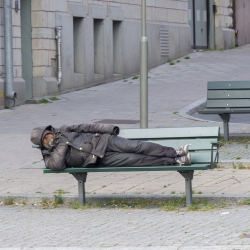To provide the best experiences, we use technologies like cookies to store and/or access device information. Consenting to these technologies will allow us to process data such as browsing behaviour or unique IDs on this site. Not consenting or withdrawing consent, may adversely affect certain features and functions.
The technical storage or access is strictly necessary for the legitimate purpose of enabling the use of a specific service explicitly requested by the subscriber or user, or for the sole purpose of carrying out the transmission of a communication over an electronic communications network.
The technical storage or access is necessary for the legitimate purpose of storing preferences that are not requested by the subscriber or user.
The technical storage or access that is used exclusively for statistical purposes.
The technical storage or access that is used exclusively for anonymous statistical purposes. Without a subpoena, voluntary compliance on the part of your Internet Service Provider, or additional records from a third party, information stored or retrieved for this purpose alone cannot usually be used to identify you.
The technical storage or access is required to create user profiles to send advertising, or to track the user on a website or across several websites for similar marketing purposes.
 Decades of declining change in the UK labour market has reduced the risk of damaging job losses, but also limited opportunities for pay-enhancing job moves, according to new research published by the Resolution Foundation for The Economy 2030 Inquiry. (more…)
Decades of declining change in the UK labour market has reduced the risk of damaging job losses, but also limited opportunities for pay-enhancing job moves, according to new research published by the Resolution Foundation for The Economy 2030 Inquiry. (more…)








 According to
According to 
 Four out of ten employers (42 percent) from across the UK have admitted they would likely seek to terminate an employees’ contract if they were homeless, despite nearly one in four households in England being at risk of or experiencing homelessness, claims a new report by
Four out of ten employers (42 percent) from across the UK have admitted they would likely seek to terminate an employees’ contract if they were homeless, despite nearly one in four households in England being at risk of or experiencing homelessness, claims a new report by 
 The UK’s workforce is undergoing rapid transformation as employees’ expectations and motivations radically change. The impact of Brexit, COVID-19 and long periods of furlough have created a tidal wave of resignations across every industry. Workers are re-thinking career paths, work conditions and long-term goals after a turbulent 18 months; with one study finding that
The UK’s workforce is undergoing rapid transformation as employees’ expectations and motivations radically change. The impact of Brexit, COVID-19 and long periods of furlough have created a tidal wave of resignations across every industry. Workers are re-thinking career paths, work conditions and long-term goals after a turbulent 18 months; with one study finding that 
 The
The 
 Recruitment firm PageGroup has releases a study which claims to shine a light on the wide range of perceived barriers facing disabled individuals in the world of work. The findings reveal how far UK businesses still have to go to level the playing field for disabled candidates. According to Parliamentary Briefing Papers on Disability Equality in the Workplace,
Recruitment firm PageGroup has releases a study which claims to shine a light on the wide range of perceived barriers facing disabled individuals in the world of work. The findings reveal how far UK businesses still have to go to level the playing field for disabled candidates. According to Parliamentary Briefing Papers on Disability Equality in the Workplace, 
 Sustainability has been steadily moving up the business agenda over the past few years, with
Sustainability has been steadily moving up the business agenda over the past few years, with 
 World Menopause Day is held each year on 18 October and its purpose is “to raise awareness of the menopause and the support options available for improving health and wellbeing” according to the
World Menopause Day is held each year on 18 October and its purpose is “to raise awareness of the menopause and the support options available for improving health and wellbeing” according to the 
 The majority (57 percent) of employers agree that the right to request flexible working should be a day-one right, claims research from the
The majority (57 percent) of employers agree that the right to request flexible working should be a day-one right, claims research from the 
 Seven in 10 (70 percent) of UK HR managers now say flexible working could work for their business – claims a new
Seven in 10 (70 percent) of UK HR managers now say flexible working could work for their business – claims a new 
 A series of reports published by the International Longevity Centre UK (ILC) highlights the economic opportunities of longer lives across Europe. According to
A series of reports published by the International Longevity Centre UK (ILC) highlights the economic opportunities of longer lives across Europe. According to 








January 11, 2022
Great Resignation offers firms a chance to create the Great Retention
by Erin Eatough • Comment, Flexible working, Wellbeing, Working culture